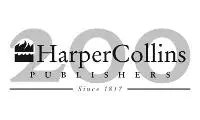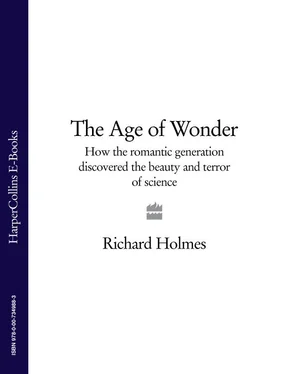How the Romantic Generation discoveredthe Beauty and Terror of Science

Copyright Copyright Dedication Epigraph Prologue 1. Joseph Banks in Paradise 2. Herschel on the Moon 3. Balloonists in Heaven 4. Herschel Among the Stars 5. Mungo Park in Africa 6. Davy on the Gas 7. Dr Frankenstein and the Soul 8. Davy and the Lamp 9. Sorcerer and Apprentice 10. Young Scientists Epilogue Cast List Keep Reading Bibliography References Index Acknowledgements About the Author Also by the Author About the Publisher
William Collins
An imprint of HarperCollins Publishers Ltd. 1 London Bridge Street London SE1 9GF
www.harpercollins.co.uk
First published by Harper Press in 2008
Copyright © Richard Holmes 2008
The author asserts the moral right to be identified as the author of this work
A catalogue record for this book is available from the British Library
All rights reserved under International and Pan-American Copyright Conventions. By payment of the required fees, you have been granted the non-exclusive, non-transferable right to access and read the text of this ebook on-screen. No part of this text may be reproduced, transmitted, down-loaded, decompiled, reverse engineered, or stored in or introduced into any information storage and retrieval system, in any form or by any means, whether electronic or mechanical, now known or hereinafter invented, without the express written permission of HarperCollins ebooks
HarperCollins Publishers has made every reasonable effort to ensure that any picture content and written content in this ebook has been included or removed in accordance with the contractual and technological constraints in operation at the time of publication
Source ISBN: 9780007149537
Ebook Edition © SEPTEMBER 2009 ISBN: 9780007349883
Version: 2017-08-14
To Jon Cook at Radio Flatlands
Two things fill my mind with ever new and increasing wonder and awe, the more
often and persistently I reflect upon them: the starry heaven above me and the
moral law within me…I see them in front of me and unite them immediately
with the consciousness of my own existence.
IMMANUEL KANT, Critique of Practical Reason (1788)
He thought about himself, and the whole Earth,
Of Man the wonderful, and of the Stars,
And how the deuce they ever could have birth;
And then he thought of Earthquakes, and of Wars,
How many miles the Moon might have in girth,
Of Air-balloons, and of the many bars
To perfect Knowledge of the boundless Skies;
And then he thought of Donna Julia’s eyes.
BYRON, Don Juan (1819), Canto 1, stanza 92
Those to whom the harmonious doors
Of Science have unbarred celestial stores…
WILLIAM WORDSWORTH, ‘Lines Additional to an Evening Walk’ (1794)
Nothing is so fatal to the progress of the human mind as to suppose our views of
science are ultimate; that there are no mysteries in nature; that our triumphs are
complete; and that there are no new worlds to conquer.
HUMPHRY DAVY, lecture (1810)
I shall attack Chemistry, like a Shark.
SAMUEL TAYLOR COLERIDGE, letter (1800)
…Then felt I like some watcher of the skies
When a new planet swims into his ken;
Or like stout Cortez when with wond’ring eyes
He stared at the Pacific…
JOHN KEATS, ms of sonnet (1816)
To the natural philosopher there is no natural object unimportant or trifling…
a soap bubble…an apple…a pebble…He walks in the midst of wonders.
JOHN HERSCHEL, A Preliminary Discourse on the Study of Natural Philosophy (1830)
Yes, there is a march of Science, but who shall beat the drums of its retreat?
CHARLES LAMB, shortly before his death (1834)
Cover Page
Title Page The Age of Wonder How the Romantic Generation discoveredthe Beauty and Terror of Science
Copyright
Dedication To Jon Cook at Radio Flatlands
Epigraph Two things fill my mind with ever new and increasing wonder and awe, the more often and persistently I reflect upon them: the starry heaven above me and the moral law within me…I see them in front of me and unite them immediately with the consciousness of my own existence. IMMANUEL KANT, Critique of Practical Reason (1788) He thought about himself, and the whole Earth, Of Man the wonderful, and of the Stars, And how the deuce they ever could have birth; And then he thought of Earthquakes, and of Wars, How many miles the Moon might have in girth, Of Air-balloons, and of the many bars To perfect Knowledge of the boundless Skies; And then he thought of Donna Julia’s eyes. BYRON, Don Juan (1819), Canto 1, stanza 92 Those to whom the harmonious doors Of Science have unbarred celestial stores… WILLIAM WORDSWORTH, ‘Lines Additional to an Evening Walk’ (1794) Nothing is so fatal to the progress of the human mind as to suppose our views of science are ultimate; that there are no mysteries in nature; that our triumphs are complete; and that there are no new worlds to conquer. HUMPHRY DAVY, lecture (1810) I shall attack Chemistry, like a Shark. SAMUEL TAYLOR COLERIDGE, letter (1800) …Then felt I like some watcher of the skies When a new planet swims into his ken; Or like stout Cortez when with wond’ring eyes He stared at the Pacific… JOHN KEATS, ms of sonnet (1816) To the natural philosopher there is no natural object unimportant or trifling… a soap bubble…an apple…a pebble…He walks in the midst of wonders. JOHN HERSCHEL, A Preliminary Discourse on the Study of Natural Philosophy (1830) Yes, there is a march of Science, but who shall beat the drums of its retreat? CHARLES LAMB, shortly before his death (1834)
Prologue Prologue 1 In my first chemistry class, at the age of fourteen, I successfully precipitated a single crystal of mineral salts. This elementary experiment was done by heating a solution of copper sulphate (I think) over a Bunsen burner, and leaving it to cool overnight. The next morning there it lay at the bottom of my carefully labelled test tube: a single beautiful crystal, the size of a flattened Fox’s Glacier Mint, a miniature ziggurat with a faint blue opalescence, propped up against the inside of the glass (too big to lie flat), monumental and mysterious to my eyes. No one else’s test tube held anything but a few feeble grains. I was triumphant, my scientific future assured. But it turned out that the chemistry master did not believe me. The crystal was too big to be true. He said (not at all unkindly) that I had obviously faked it, and slipped a piece of coloured glass into the test tube instead. It was quite a good joke. I implored him, ‘Oh, test it, sir; just test it!’ But he refused, and moved on to other matters. In that moment of helpless disappointment I think I first glimpsed exactly what real science should be. To add to it, years later I learned the motto of the Royal Society: Nullius in Verba -‘Nothing upon Another’s Word’. I have never forgotten this incident, and have often related it to scientific friends. They nod sympathetically, though they tend to add that I did not (as a matter of chemical fact) precipitate a crystal at all-what I did was to seed one, a rather different process. No doubt this is so. But the eventual consequence, after many years of cooling, has certainly been to precipitate this book.
Читать дальше













